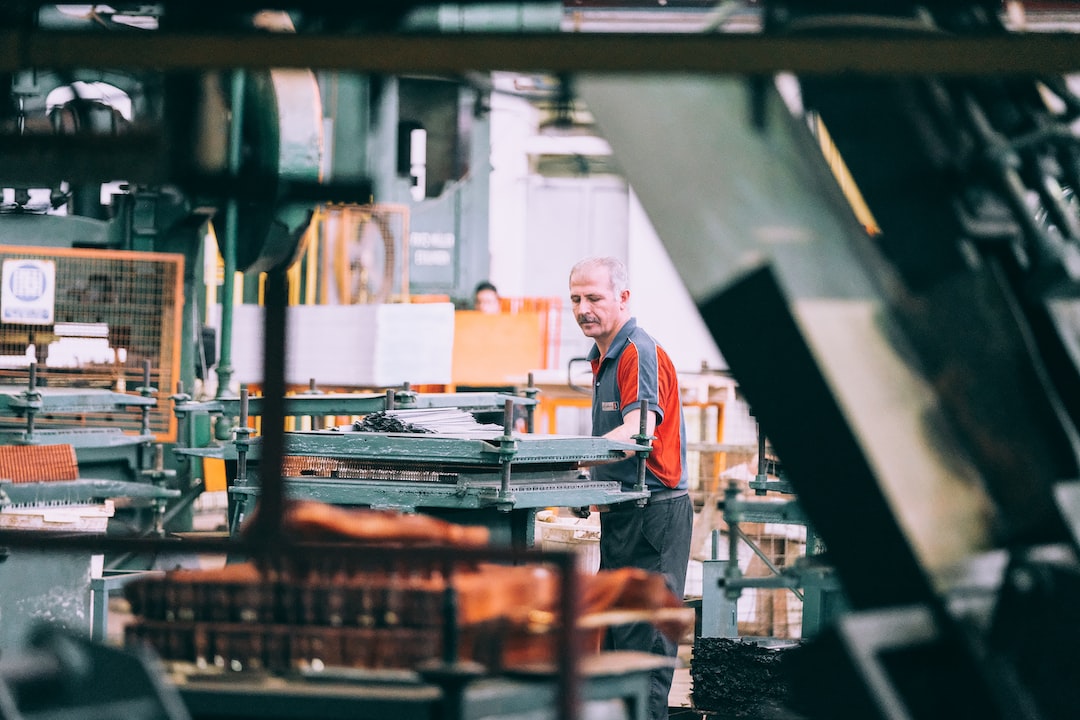The Impact of Artificial Intelligence on Manufacturing
Artificial Intelligence (AI) has emerged as a game-changer in almost every industry, and manufacturing is no exception. The rise of AI in manufacturing has brought about significant changes and advancements, revolutionizing the way businesses operate and produce goods. This blog post will explore the various ways in which AI is impacting the manufacturing sector.
One of the primary applications of AI in manufacturing is in the realm of predictive maintenance. Traditional maintenance methods often relied on manual inspections or scheduled maintenance checks, leading to inefficiencies and potential breakdowns. With AI, sensors and data analytics can be used to monitor the performance of machinery and equipment in real-time. By collecting and analyzing data, AI algorithms can accurately predict and identify any potential malfunction or breakdown, allowing manufacturers to take proactive measures and perform maintenance before any significant issues arise. This not only saves time and resources but also minimizes downtime and boosts overall productivity.
AI-powered robots and automation have become an integral part of modern manufacturing processes. These robots are capable of performing repetitive and mundane tasks with precision and speed, reducing the need for human intervention in repetitive tasks. This leads to higher efficiency, improved product quality, and reduced production costs. In addition, AI-powered robots can also be trained and programmed to handle more complex tasks and adapt to different scenarios, making them versatile and flexible assets in the manufacturing industry. The use of AI in robotics has also improved the safety of workers by automating dangerous and hazardous tasks, reducing the risk of accidents and injuries.
Quality control is another critical aspect of manufacturing that has seen significant improvements with the implementation of AI. Traditionally, quality control was carried out manually, which was not only time-consuming but also prone to human errors. AI systems, equipped with machine learning algorithms, can analyze vast amounts of data and identify patterns and anomalies that may indicate a defective product. By continuously learning from the data, AI algorithms can continuously improve their accuracy and efficiency, ensuring that only high-quality products reach the market. This not only strengthens the reputation of manufacturers but also increases customer satisfaction, ultimately leading to higher sales and profits.
AI has also revolutionized supply chain management in the manufacturing industry. Through the integration of AI systems, manufacturers can optimize inventory management and streamline the supply chain process. By analyzing historical data, AI algorithms can accurately predict demand patterns, enabling manufacturers to maintain optimal inventory levels and avoid overstocking or stockouts. This results in significant cost savings and improved customer service by ensuring timely delivery of products. In addition, AI can also optimize routes and logistics, reducing transportation costs and improving overall efficiency.
Furthermore, the use of AI in manufacturing has opened doors for the development of smart factories. AI can be used to connect various systems, machines, and devices within a factory, enabling seamless communication and integration. This allows manufacturers to gain real-time insights into production processes and make data-driven decisions. The data collected from various sources within the factory can be analyzed using AI algorithms, leading to improvements in efficiency, productivity, and overall performance. Smart factories powered by AI can also help manufacturers identify bottlenecks and areas for improvement, leading to process optimization and cost reduction.
While AI has undoubtedly revolutionized the manufacturing industry, it is essential to address some concerns and challenges that come with its implementation. The integration of AI systems requires significant upfront investment in terms of technology, infrastructure, and training. Additionally, there may be concerns about job losses and the displacement of workers due to automation. However, it is crucial to understand that AI does not replace human workers but rather complements their skills and capabilities. The implementation of AI in manufacturing opens up new opportunities for workers to upskill and take up more complex roles that require critical thinking and problem-solving abilities.
In conclusion, the impact of AI on manufacturing has been transformative. From predictive maintenance to robotics, quality control to supply chain management, AI has optimized various aspects of the manufacturing process, leading to increased productivity, improved efficiency, and reduced costs. With further advancements in AI technology, the manufacturing industry is set to witness even more significant changes in the future. It is essential for manufacturers to embrace AI and leverage its potential to stay competitive in this rapidly evolving landscape.

